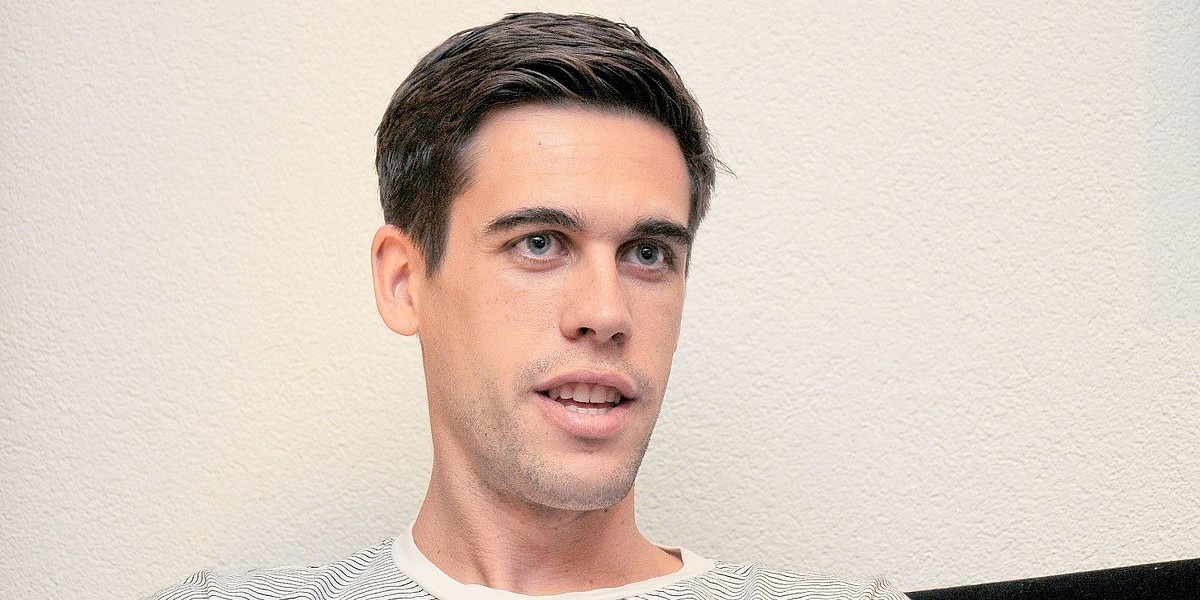This week’s guest on Famous Failures is Ryan Holiday.
Ryan Holiday is a bestselling writer and media strategist. Ryan has yet to turn 30, but he has already accomplished more than what most people do in a lifetime. He became the Director of Marketing at American Apparel at the age of 21 (!) and went on to create his own wildly successful marketing agency. He has written five books, including The Obstacle Is the Way, Ego Is the Enemy, and The Daily Stoic. The Obstacle Is the Way has been translated into more than twenty languages and has a cult following among NFL coaches, world-class athletes, TV personalities, political leaders, and others around the world.
What follows is an edited version of our conversation. I hope you enjoy it as much as I did.
What are some of the most valuable failures you’ve had in your life?
We either totally ignore failure or we fetishize it to a degree where we feel like every successful person must have had one or two enormous failures that made them who they are. We assume they had to grind through it and we just make that part of the narrative—which I think is the same problem.
I like to look at minor failures and I feel that I learned the most from those.
Can you give an example?
On Ego Is the Enemy, I put a call to action in the back of my book, so I can connect with the audience who reads the book. I made up the phrase, Ego is the Enemy, and I was going to have readers send an email to egoistheenemy@gmail.com. If people did that, they would get all of these bonuses.
I can’t figure out what happened exactly but I either registered egoistheenemy@gmail.com and forgot about it and could not find the password for the life of me or somebody registered the email address before me, which is also somewhat unbelievable to me because I made up the phrase.
The first printing of the book goes out (many thousands of copies) and I had never bothered to check that email. I just never got around to it and by the time I went to log in to the address, it wouldn’t let me. The first printing of that book went out with an email address that’s designed to capture things and that goes to an email address that I don’t control. I spent all this energy and time trying to get it back from Google and they said we have very strict criteria to allow you to get back into an account and you haven’t met them, so you can’t get it.
I decided to eat this and I lost, who knows, ten thousand or twenty thousand email addresses.
On the one hand, this is very frustrating and annoying.
On the other hand, I know I have a problem not checking things and not being organized and putting things off to a later date.
So the lesson I take from it is a very public, a very frustrating, and a very costly reminder of why those habits are not good and why I need to work on them.
I think about that constantly now: Am I doing this again? Am I repeating what I did before?
Here’s another example.
I started my company Brass Check in 2011. A former business partner, friend, and mentor of mine, and I decided to merge these two companies together to create a bigger and more involved company. I don’t remember exactly why this was attractive to me besides the fact that I had a long history with this person.
I remember talking to my wife about the idea. She was very adamant that this was a bad idea, that this wasn’t going to work, and that I was going to regret it. I remember very consciously thinking she’s almost always right, but in this instance, she’s completely wrong. I remember saying I’m going to override this advice–I understand it but it’s wrong. I was proud of myself because if you listen to everyone else all the time, you’re not doing it right either.
She, of course, was totally right. The company was a disaster. It was completely miserable. It probably sucked a year out of my life–a year of frustration and difficulty and fighting and arguing. It also cost both sides quite a deal of money.
Why do you think you went ahead with the merger?
I have no real reason. I thought it was what I was supposed to do. I was so caught up in somebody else’s vision for how this should go. I didn’t stop and actually ask myself what I wanted or what I was trying to accomplish or what success would look like, other than it might make me more money. It was completely miserable. So I think about that now a lot when I look at other business opportunities.
How did you decide to walk away from it?
There were a number of arguments and fights. I was dreading having to deal with it, but then I realized I don’t have any practice or experience dealing with something like this. I decided that I would rather learn this here more cheaply than I might learn it two years from now on a different project. I’ve never really had anything fail at this level before. The company was actually doing well but it was a failure in a number of other ways. I never had anything go so south so quickly and even as it was happening, in some ways, I somewhat appreciated the chance to do it.
What failure do you think was your hardest and what advice do you wish you had when you were navigating that failure?
Almost all the failures I’ve had in my life that have been very, very hard were inevitably made harder by what I projected onto the other person.
I projected onto them that our interests were totally aligned, that they were a father figure to me, or that they were a great person. I did this either naively or optimistically or even in a self-serving way and then it made the ultimate reveal that much more painful.
Part of the reason these failures crush us is that, instead of seeing the little clues as they’re happening, we ignore them. Like the one I was talking to you about: It wasn’t a surprise to my wife that the merger was a failure, but it was only crushing to me because it was a surprise.
We’re so blind to what’s obviously right there in front of us: the stock that we’ve invested in is going south, the idea was never a sound one to begin with, the person was inherently unstable. We blind ourselves to little clues and then the ultimate thing that breaks through and gets us to see it has to be so much harder.
There’s a line from Mike Tyson in one of my books that says, “If you’re not humble life will visit humbleness upon you.” If you’re not receptive to the feedback, it’s going to have to get louder and louder until you hear it.
When you develop that sort of blind spot or tunnel vision, what helps you step back and see the objective bigger picture?
You should be trying to create that in your work or personal life on purpose. Surround yourself with people who see things differently than you and who aren’t reluctant to share that opinion.
There’s that saying: If everyone’s thinking alike, then no one is thinking.
You need to have that diversity of thought in your organization to help you see things.
You want to be constantly questioning your own assumptions. Just because you’ve gone so far into something, just because you’ve invested a certain amount, doesn’t mean that you shouldn’t be reconsidering it.
Just because the math worked six months ago doesn’t mean the math works now.
A lot of people fall victim to the sunk cost bias by refusing to abandon projects where they invested so much money and energy. And the point you made about surrounding yourself with people who see things differently is really important. And that’s getting more and more difficult with social media. We now live in this echo chamber, getting our opinions from the same sources, and then just regurgitating them.
Yeah, this is also true. I’m sure you found the same in some of your work on authoritarian regimes. The higher you go up, the air gets thinner, the information gets last clean. There are more agendas, so you cease to be able to get new information that allows you to question your assumptions and that’s really, really dangerous.
There can be such a disconnect between an authoritarian leader and the public that when the revolution happens, the dictator is completely blindsided because they just had no idea what was coming precisely for the reason you describe.
There’s a line from Upton Sinclair where he says, “It is difficult to get a man to understand something when his salary depends on his not understanding it.” It’s also very hard to get people to understand things when their identity is dependent on them not understanding it.
How do you convince someone that they’re a douche? Very hard. That requires self-awareness first and foremost and then it requires a willingness to feel pain and most people aren’t willing to do that.
How are you failing right now?
One of the things that I fail at is that I take on too many things at the same time. And I know this is true and I know this is a habit but it’s hard for me to say no to things. So I end up putting myself in the same position over and over again.
I think the problem I have is that you take on more than you can but if you succeed, if you come out the other side, you’ve actually learned the wrong lesson. So I see one of the failures in myself and in other people like me is where you do something wrong–you do it the wrong way or you do it for the wrong reasons–but if you don’t experience the failure, it doesn’t change the fact that it was the wrong thing to do. You’re really just deferring that failure and maybe increasing its magnitude.
Let’s say you’re Donald Trump and you keep thinking you’re bulletproof. You’re not actually bulletproof. You’re just deferring the consequences and when it does happen it’s probably going to be fatal.
Uber is a great example of this. Uber was doing the wrong thing for the wrong reasons over and over again and never dealt with any consequences. Now they are dealing with the consequences and it seems completely out of proportion. The CEO yelled at some guy, they ignored some regulations, and they were sued by Google. Individually none of those is that big of a deal but it was deferred and compounded and then when it did happen, it was really bad.
This goes back to one of your first points about fetishizing failure. This is a similar type of problem where you’re not learning from your failures. It’s one thing to fail but something else to fail to appreciate the experience and actually pick up something from it to change yourself for the better. But if you skip that step, then failure is worthless.
Yes and you can also learn the wrong lessons from a failure. Let’s say you fail, and you tell yourself, I failed, but it was their fault or it was a fluke.
Failure in and of itself is neither good nor bad. What you take from it is what’s good or bad.
How do you fail when it comes to writing?
That is a tough question because in writing, unlike in sports, there’s no concrete winning or losing.
I was talking to a baseball manager and he was saying that in a good season we’re going to lose a minimum of sixty games and we’re going to win a minimum of sixty games. It’s the other forty games that matter. But very few professions are like that.
One of the failures in writing is that every day you’re failing because you have a vision for what you want it to be in your head and it’s never that. So you’re constantly working on it and figuring out how to get there.
You think you wrote something great and then you read it a week later and it’s not great.
That’s part of the failure process, and I definitely experience that. It’s very humbling and it keeps you going all the time.
The more insidious failure is the failure to challenge yourself. Are you pushing yourself? Is this really the best of what you’re capable of? Sometimes I have a very clear answer to that and other times I might be being lazy or I might be settling. I might be creating artificial deadlines that justify some of this but that’s definitely a place for failure as a writer.
How do you know whether you’re challenging yourself as a writer?
You need to ask, “Could someone else have written this?” That’s one metric. Or ask, “Have I written this before? Or am I just doing the same thing over and over again?”
I also ask, “Is this kicking my ass?” It could be kicking my ass because it’s the wrong thing for me to be doing or maybe it’s kicking my ass because I’ve never done it before and I’ve set the bar really high.
There’s no right or wrong answer.
It’s not a win-lose thing like sports. But if you’re not having that discussion, chances are you’re not pushing yourself.
You describe writing as a humbling experience. What keeps you returning to the writing table?
I personally like that challenge. I want to get better. I don’t want to feel great at it all the time. You’re really chasing that dragon a little bit. There’s also the allure of what’s on the other side of it. You know that if you are pushing yourself, what you’re going to make is going to be better, people are going to like it more, it’s going to sell better, it’s going to have more impact, and you’re going to be prouder of it.
It’s like lifting weights. The resistance is the evidence that you are stretching and straining in a positive way.
I think it was Steven Pressfield who said that if you’re afraid of something, that’s a good sign that you should do it.
If you’re not afraid, it’s either a slam dunk or it’s probably not what you should be doing.
Bold



